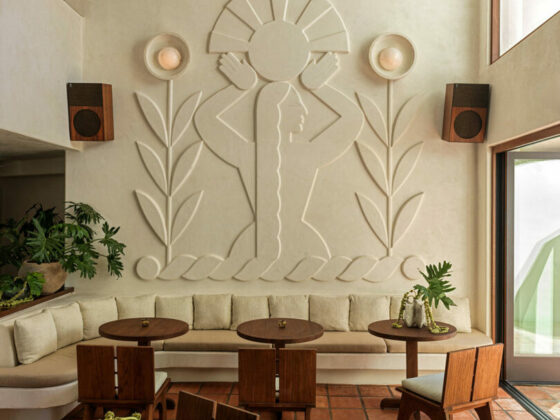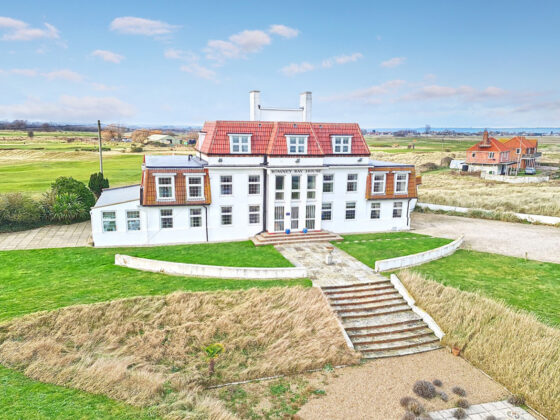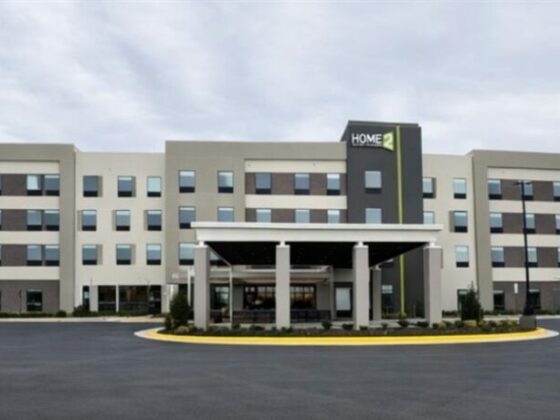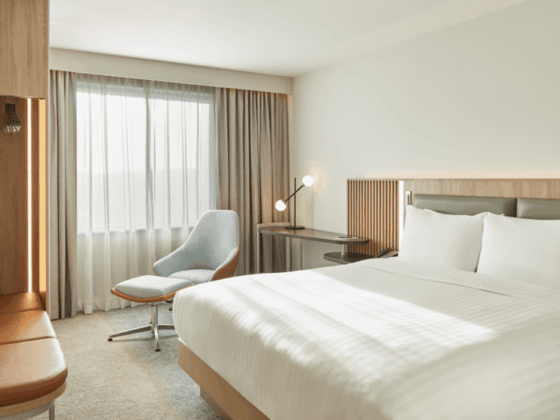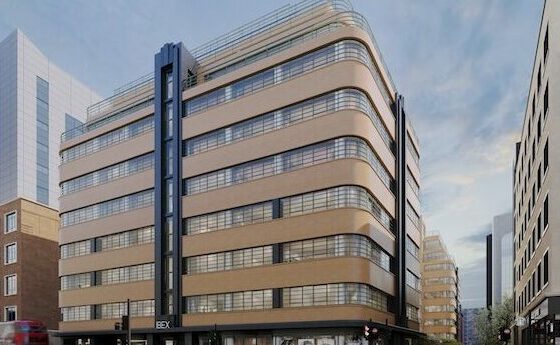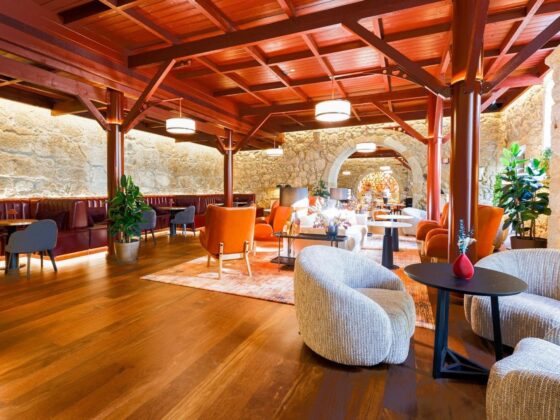Hilton is a 106-year-old company that started in 1919 with the purchase of a small hotel in Cisco, Texas by Conrad Hilton. The first hotel formally named a Hilton opened in Dallas six years later. What started as one name and one hotel has grown to 24 brands in all and a loyalty program totaling more than 200 million members. The vast stable of brands—from DoubleTree to Hampton, LXR to Waldorf Astoria—can make it easy to forget that Hilton is still the flagship brand of Hilton with more than 600 properties globally.
Hilton is a full-service brand that caters to leisure and corporate guests alike, and groups, due to its customary large amount of meetings and banquet space. The Hilton brand has come a long way since its Texas roots (in 1927, Hilton opened its first hotel with cold running water and air-conditioning in Waco, Texas), but like anything, there is always need and time for improvement.
It makes sense that the newly opened Hilton Arlington Rosslyn The Key would be the hotel to showcase the new ethos of Hilton: The 36-story hotel, which stands like a sentry at the foot of the Francis Scott Key Bridge, overlooking Washington, D.C., is only about a 15-minute-with-no-traffic drive to Hilton’s global headquarters in McLean, Va. (Hilton President and CEO Chris Nassetta is also an Arlington native.) The hotel, developed and owned by Dittmar Company, a local builder known more for its residential buildings, is the first property to debut the brand’s refreshed identity, which Hilton calls “a modernized expression of Hilton,” reflected through design and service.
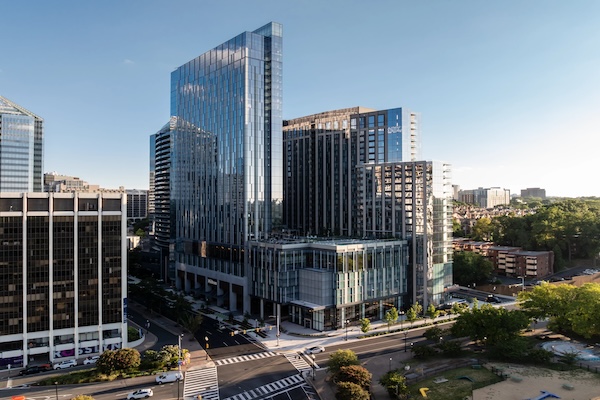
As Leonard Gooz, brand leader, Hilton Hotels & Resorts, explained it, the Hilton Arlington Rosslyn The Key is a representation of a new kind of Hilton that at the same time embraces its heritage while accommodating for the new breed of traveler. “We’re fully committed to creating a space where energizing connections come to life every day through dynamic meetings and events, elevated culinary experiences and immersive moments that blend global perspectives with authentic local culture,” he said.
The statement might sound a little broad, but a recent visit to the hotel by Skift gave it some specificity. No longer will guests be greeted by a standard front desk up against a wall—it’s been pushed to the middle of the lobby. The idea is to make the lobby area more comfortable and inviting and worthy of a space to mingle and commune.
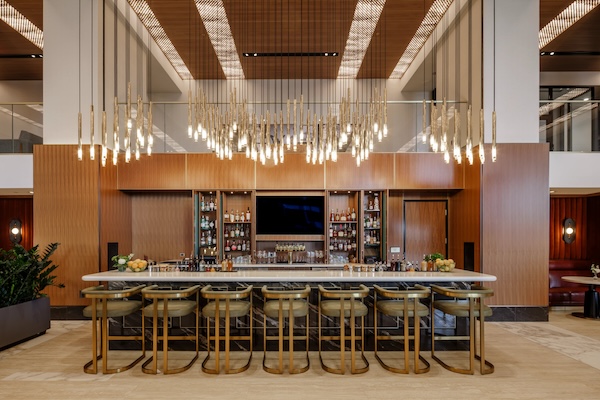
One key change noted by Skift is that Hilton decided based on customer feedback the optionality to remove pesky alarm clocks that blink, glow and, invariably, aren’t set to the right time. Also at the new Arlington property, Dittmar, which also operates the hotel, decided against supplying irons and ironing boards in guestrooms, opting instead for handheld steamers. The shift could ruffle some traditional business travelers but saves on space and operational costs.
Food and beverage was outsourced to Metropolitan Hospitality Group, which operates multiple local restaurants and bars. The hotel’s main food space is Locket, described as serving American fare and opened for all-day dining.
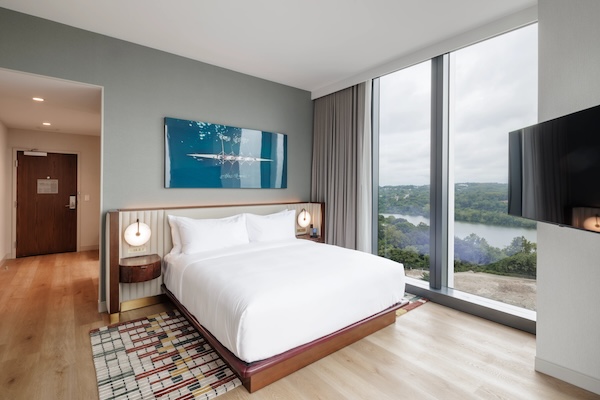
“Our vision was to create a dynamic destination that seamlessly integrates legendary meeting and event spaces with vibrant community features, offering a compelling new experience for residents, travelers and locals alike in the heart of Rosslyn,” said Greg Raines, an executive at Dittmar Company.
The hotel has 331 guestrooms total, with design touches that feature what Hilton calls a balance of bold architectural elements and organic touches (think earthy blues and warm, inviting colors that try and capture the energy of D.C.). The hotel also offers 28,000 square feet of flexible meeting and event space, including nine meeting rooms. The View at the Key on the 36th floor is a signature venue offering 360-degree views of Washington, D.C., the Potomac River and Arlington’s skyline.


